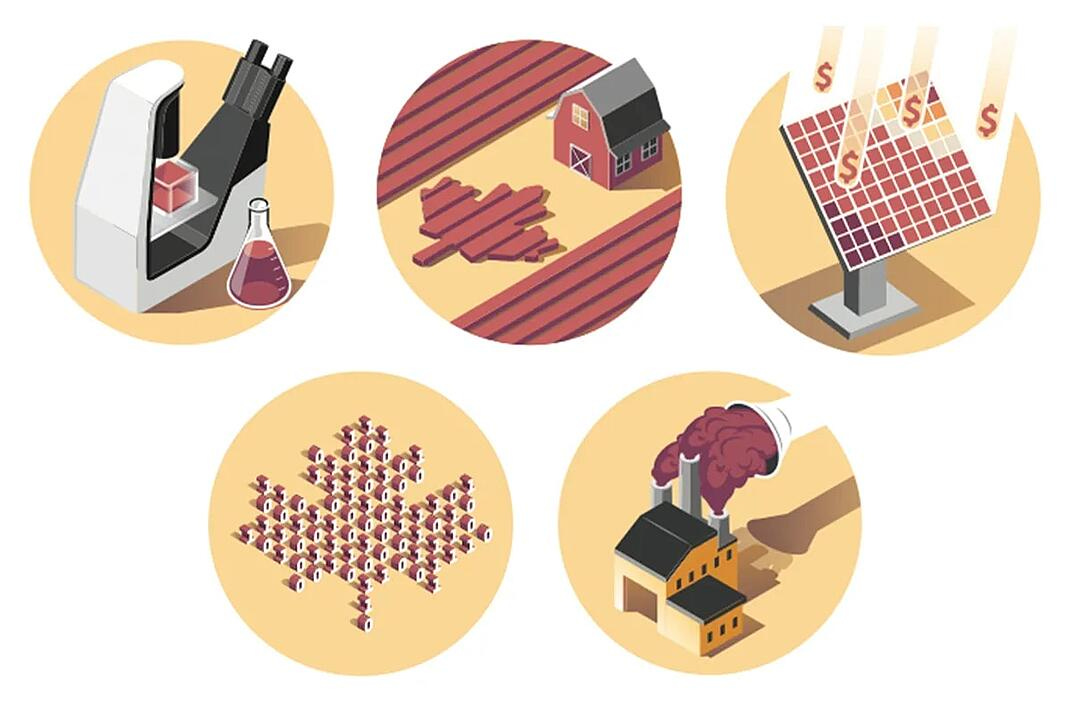The Wrap #19 | It’s geopolitical this time
A shot of thinking fuel, brought to you each month by Futurestate Design Co.
How does your business strategy relate to Canada's future growth, the UK Ministry of Defence or The USA's challenges with electric vehicles?
There are both words of warning and clear opportunities in this week’s edition of The Wrap. As always, expect a liberal dose of healthy recommendations and seeds of inspiration to help your business keep doing… business.
Onwards!
How much can your business learn from the MoD? Let me count the ways…
What’s going on?
Our hearts are all aflutter. The Ministry of Defence has put together an SME action plan, looking to rope in the expertise, agility and diversity of the nation’s entrepreneurs in regards to MoD procurement contracts.
Why it matters
The MoD recognises the changing landscape of the world they exist in. If it continues to implement traditional strategies in a world of non-traditional threats, then it’s more than just its business model that could suffer.
Good news! It’s spotted the wealth of opportunities beyond its usual ecosystem. By embracing these solutions, or providers, it brings multi-disciplinary teams and new thinkers into the fold, with a united goal. The possibilities are huge.
Do you have a consortium of providers whose expertise can be leveraged to achieve exponential innovation, or are your provider relationships simply ‘good’? How can you better enlist them to a shared purpose?
A business version of The A-Team. An easy sell-in, surely
Read the plan in full at GOV.UK
Same challenge, different cut
What’s going on?
Canada, on the other hand, is trying to expedite a growth plan for the future, but is lagging behind. It’s not for lack of trying. The recommendations in various lofty reports (with ‘10,000 foot-high language’) aren’t quite connecting to public policy, and investment in innovation has segmented into more regional endeavours without the hoped-for results.
Why it matters
The recommendations for the country, set out in this article — 10,000 foot-high language-free — are pointedly relevant to future business strategy more generally.
By taking the time to really consider the value of resources; by asking yourself, what untapped advantages can we double down on?; and — of course — by undergoing a bold digital transformation, you can become a major player in any field.
It’s definitely worth a read, but if there’s one quote we’d like to leave you with, it’s this, from John Baker, CEO of D2L Corp.,
“If we’re not building it then we’ll be buying it… The pace of digital transformation is unprecedented. We have to capture it or we jeopardize our future. Because, in a blink of an eye, it’s over.”
John, we couldn’t put it better ourselves (though we try to, often enough).
Read the original on The Globe and Mail
And a different cut again…
What’s going on?
The US is in a similar fix to Canada, but this time it’s in terms of how not to fall behind on electric vehicle (EV) industry, sales and infrastructure.
Significant underinvestment in the past (notably, Trump’s four years in office stalled already lagging investment into EVs) has meant that current intentions to perform in the EV market are seriously, seriously lagging.
Why it matters
Inherited problems aside, the US has two hefty nuts to crack when it comes to making up lost ground here.
Firstly, addressing consumer behaviours can be key to succeeding in certain markets.
Charge points in the States are often clustered and improved access is essential. Why not break out of the ‘gas station’ infrastructure of yore, and support people’s lifestyles with charging points in places like grocery store car parks and, of course, at fast food outlets? EVs are a growing market in Europe, where there is less range anxiety… Combat that and the US can start to allay consumers’ fears.
By challenging legacy models (that, granted, used to work), you can usher in fresh approaches that can reset expectations and define new behaviours.
And, secondly: know what you’re not.
General Motors know what they do well, and what they don’t. This gives them the advantage that they can spot partnership opportunities (if you can’t beat them, they say…) without going to ground trying to compete with businesses who are leagues ahead.
In this case, knowing that they have little experience in the manufacture of electric motors, they’ve partnered with a Chinese company to create an entry-level EV.
Don’t be afraid to break free of bound-up thinking: it doesn’t matter if it’s another company, in another country, in another market, you can still deliver products you may not otherwise be able to, to consumers you can’t usually reach.
Read the original on Wired






